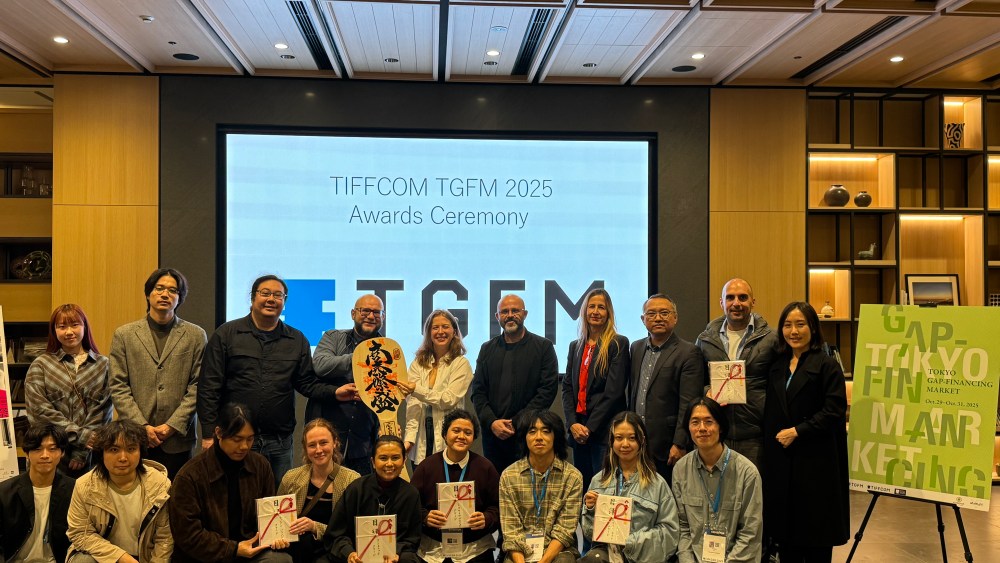Indonesian auteur Kamila Andini’s latest project “Four Seasons in Java” won two prizes at the inaugural Tokyo Gap-Financing Market Awards on Friday.
The TGFM is part of TIFFCOM, the Tokyo International Film Festival‘s market arm. “Four Seasons in Java” won TGFM’s top prize, the Tokyo Projects Award, carrying a JPY2 million ($13,225) cash prize, and the Kongchak Award from Cambodia-based Kongchak Studio, offering sound post-production services valued at $25,000.
The film is a magical realist drama that confronts the dark underbelly of progress and power in contemporary Indonesia, is in post-production and was previously at the Venice Gap-Financing Market. It follows Pertiwi, a woman who returns to her village after more than a decade in prison for killing a young man while defending herself from attempted rape. Her homecoming coincides with the arrival of electricity to the remote community, setting up what Andini describes as a collision between modernity and personal trauma that she sees “repeating in our daily life.”
TGFM jury member and festival director and programmer Paolo Bertolin, said while announcing the award: “TGFM 2025 would like to acknowledge the striking overall quality and diversity of the lineup, which put us through a real challenge in selecting one and only project for this award. More specifically, we would also like to draw attention and commend the selection of Southeast Asian projects. Reflecting different creative approaches and scopes of production. These projects chart the exciting geography of a region brewing with talents and cinematic vitality, and indeed, the project we selected for Tokyo Project Award 2025 hails from this region, and offers a powerful statement of maturity from a filmmaker tackling sensitive and relevant topics with dedication, sincerity and vigorous cinematic storytelling.”
The Asian Gen-Z Award worth JPY500,000 ($3,305), determined by a selection committee of five film students aged 20 to 28, went to Filipino filmmaker Don Josephus Raphael Eblahan’s sci-fi western “Hum.”
In the film, after a devastating earthquake, a young veterinarian works at an evacuation center to treat injured farm animals. While caring for them, her professor discovers something extraordinary: her student can “speak” to animals. As she learns to harness this gift, she realizes that the creatures can sense and even predict aftershocks. Using this newfound connection, she helps her cowboy friends and family prepare for what’s to come. But her world is shaken once more when another person with the same ability appears… a man who police believe is responsible for causing the earthquake that destroyed their town. Upon his mysterious arrival, she attempts to unravel his mystery by interrogating him in the secret primal language that only the two of them speak.
The Asian Gen-Z Award special mention went to Andrea Benjamin Manenti’s debut feature “I Have to Fuck Before the World Ends,” a cross-cultural coming-of-age comedy set between Italy and the Philippines. The film follows Ren, a 16-year-old Filipino-Italian teenager trapped in his mother Mia’s possessive love, who must break free during a three-day Filipino wake as Typhoon Edith approaches Manila. When news arrives that Mia’s mother Moini is dying in the Philippines, mother and son return to Manila, where Ren finds himself enchanted by Jolina, his cousins’ babysitter, and coached in the art of love by his eccentric cousin Monique. As Typhoon Edith nears and family dysfunction brews, Ren must claim his independence.
The White Light Award from Thailand’s White Light, providing post-production services valued at $25,000, went to Japanese-Taiwanese co-production “Polaris,” directed by Seta Natsuki. It unfolds over one winter night at a bar in Ni-chome. Based on the novel “The Night of the Shining North Star” by Li Kotomi, the film centers on women of different ages, nationalities and sexualities who gather in the titular establishment, sharing drinks, laughter and fragments of their lives under soft blue light. As their stories intersect like stars in a constellation, the film explores themes of self-identity and human connection before the women part ways at dawn.


AloJapan.com